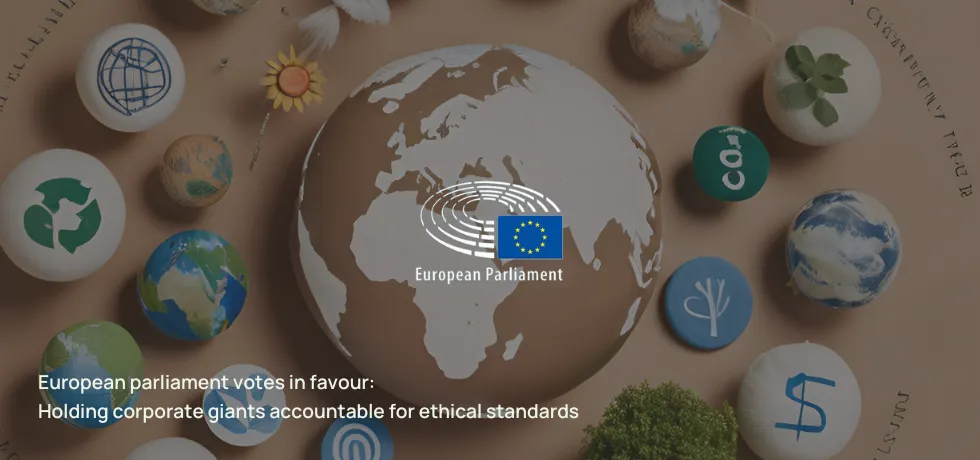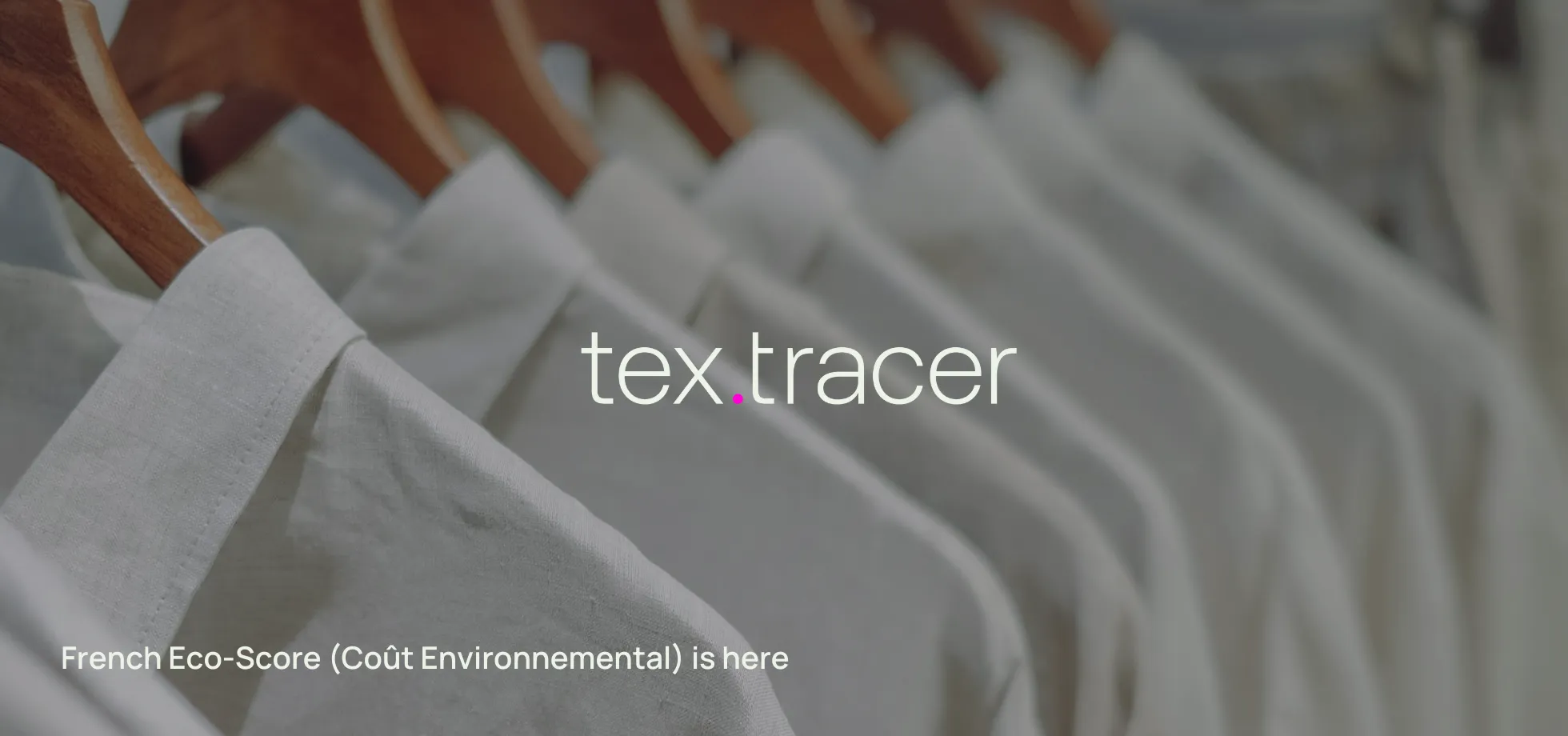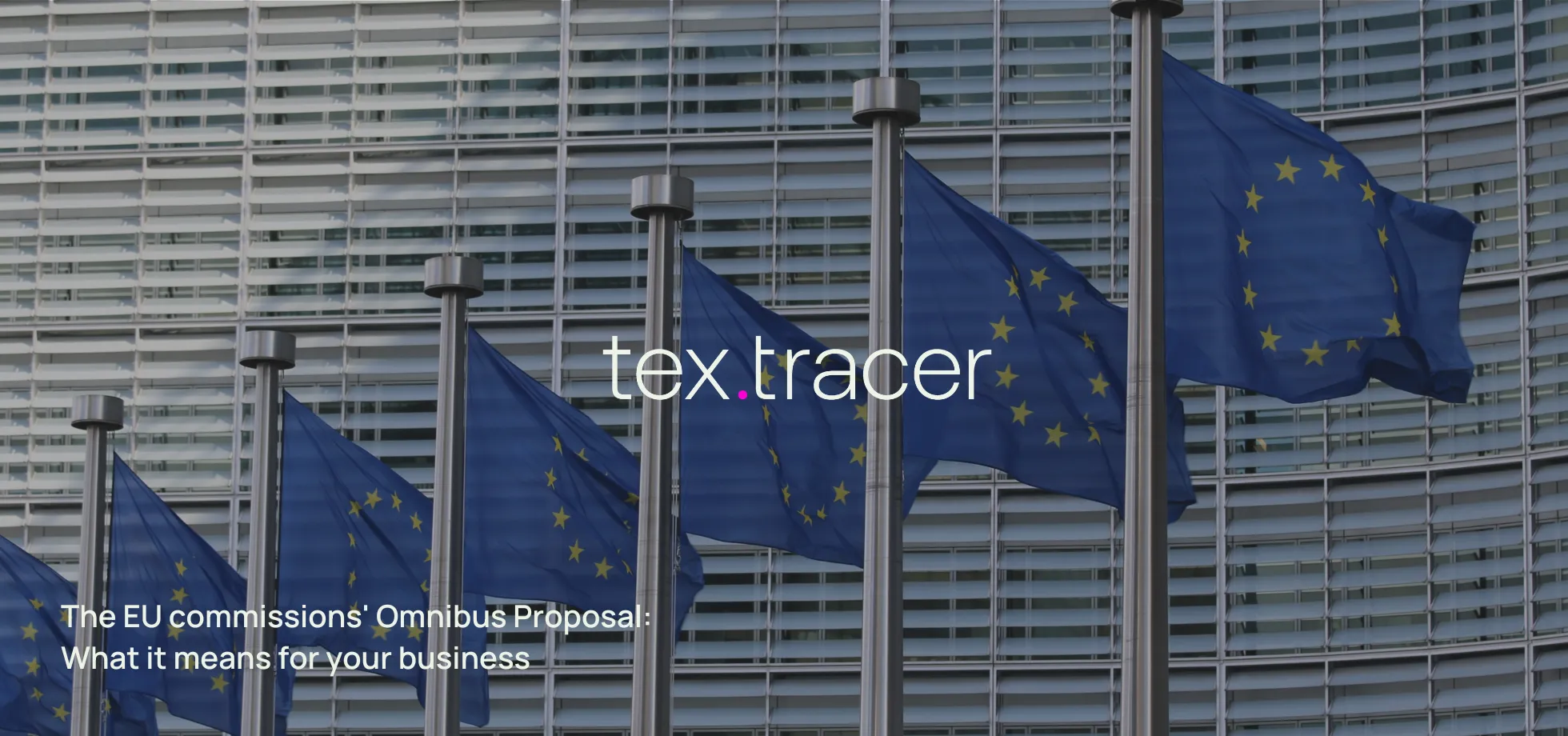Tackling unsustainable practices
At the end of April, the European Parliament voted in favour of an update on the Eco-design for Sustainable Products Regulation (ESPR), marking a significant milestone in the EU's efforts to promote a more sustainable market. This update aims to ban the incineration of unsold clothing by major corporations, expanding the directive's scope to include clothing companies and furniture makers. With millions of unsold garments currently ending up in landfills or being burned annually, this initiative is a crucial step towards mitigating fashion's environmental footprint and promoting responsible product lifecycle management.
Ensuring accountability and justice
Imagine your favourite cotton T-shirt. With this new law, companies won't be able to turn a blind eye to potential abuses anymore. They'll be required to conduct thorough investigations into their entire value chain and report annually on their findings. Most importantly, they'll be compelled to take appropriate actions to address and prevent the most significant issues discovered. What's more, the law empowers victims by providing them with opportunities for seeking justice by taking legal action against companies that violate their rights. They can file complaints directly with the company involved and escalate matters to the relevant authority in the country where the company is headquartered. Penalties for non-compliance can be hefty, with fines amounting to at least 5% of a company's total revenue.
Upholding transparency and responsibility
With millions of unsold garments currently ending up in landfills or being burned annually, this initiative is a crucial step towards mitigating fashion's environmental footprint and promoting responsible product lifecycle management. This isn't just a win for accountability; it's a win for justice and transparency in our global supply chains. Something that is at the core of tex.tracer, as we've always been committed to radical transparency and responsible sourcing.
But the progress doesn't stop there. The European Parliament also approved legislation aimed at combating environmental and human rights violations within the global supply chains of major corporations. With the Corporate Sustainability Due Diligence Directive (CSDDD), large companies will finally be held accountable for issues such as exploitation and pollution within their supply chains. This groundbreaking legislation, often referred to as the anti-lookaway law, obliges companies to identify, address, and combat these issues and violations, signaling a shift towards a more sustainable, fairer world.
Promoting circular economy initiatives
As we celebrate these achievements, it's essential to highlight the Eco-design for Sustainable Products Regulation. This regulation aims to establish tailored eco-design minimum requirements for various product groups, promoting circularity and sustainability within the EU Single Market. With a closed list of levers focusing on aspects like durability, recyclability, and environmental impacts, this regulation ensures that only compliant and environmentally friendly products circulate within the market.
Furthermore, the regulation introduces the concept of the Digital Product Passport, a tool designed to provide consumers and stakeholders with transparent insights into a product's sustainability credentials and lifecycle details. This initiative aims to stimulate sustainability and circularity by sharing information across the product value chain and ensuring regulatory compliance.
Commitment to sustainable futures
In summary, these developments underscore the EU's commitment to fostering a more sustainable and environmentally conscious marketplace. While ambitious goals have been set, effective enforcement and collaboration across sectors will be essential to realise the full potential of these legislative measures.




